Is this the end of the $2 taco truck taco?
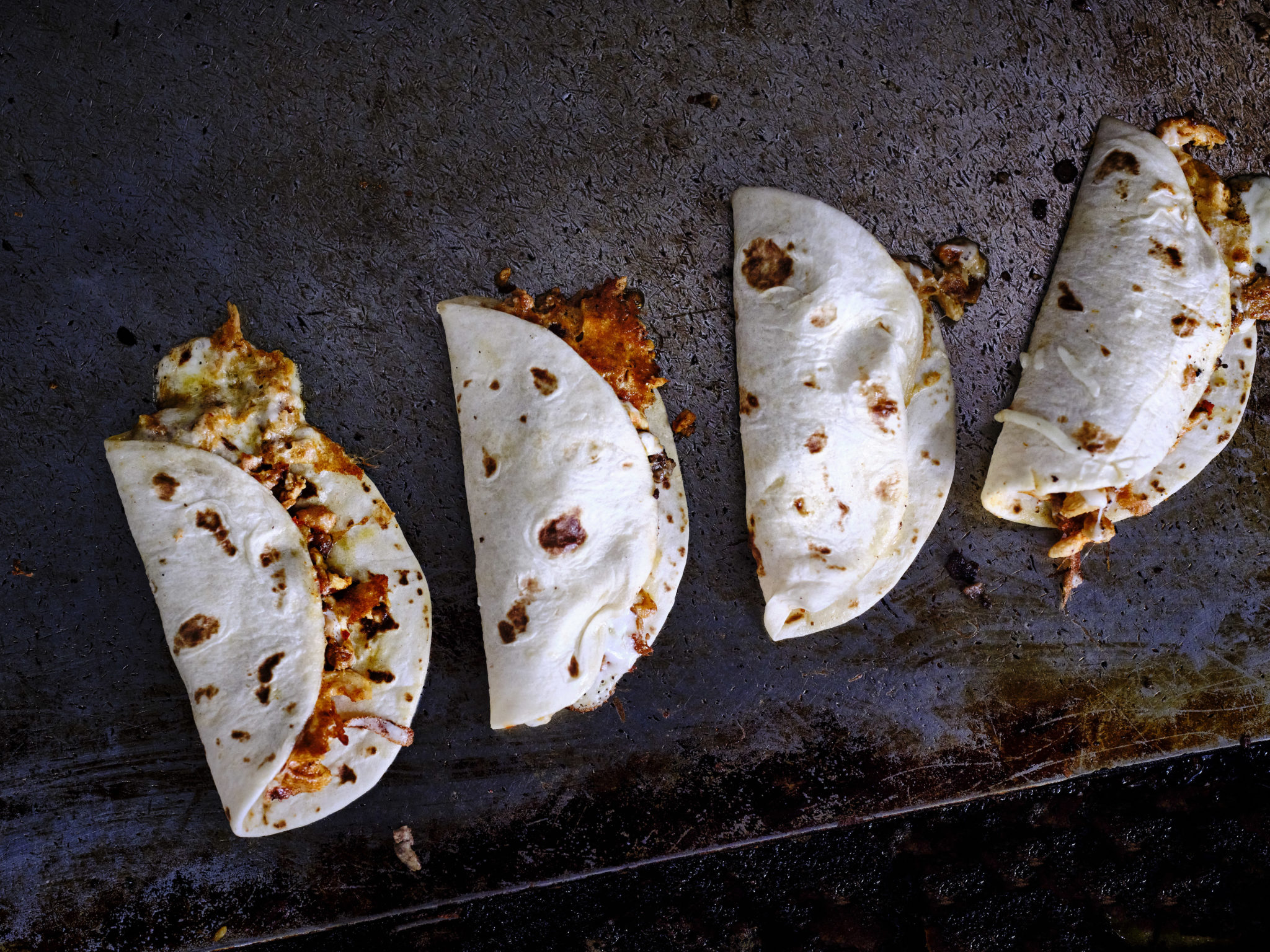
EDITOR’S NOTE: In keeping with Frame’s mission to cultivate and celebrate culinary talent, Frame Stories occasionally spotlights content from other independent media organizations that are essential to documenting and preserving the work of this dynamic community. This month, we’ve partnered with Tostada Magazine, a Detroit-based digital food magazine founded by Chicana journalist Serena Maria Daniels that centers stories and perspectives of immigrants and people of color. Please consider supporting Tostada’s work with a donation, and keep an eye out for Tostada’s first-ever Anti-Gentrifier’s Guide to Dining in Detroit, in partnership with BridgeDetroit, which this profile of the El Taquito taco truck is drawn from.
The sun was nowhere in sight when Fabian Hernandez sprinkled a handful of chopped asada, or thinly sliced steak, onto the sizzling flat-top stove inside the El Taquito taco truck.
Hernandez, the truck’s manager and operating partner, has a nimble cooking rhythm, a skill cultivated during his days working at local restaurants.
It’s 5 p.m. on the Wednesday before Thanksgiving (since our interview with Hernandez, he’s relocated temporarily to Jalisco, though his uncle José Gomez and cousin María continue to run the business). El Taquito is one of a smattering of taco trucks perched near the Vernor and Military intersection in Southwest Detroit. It’s no mystery why the neighborhood, a stronghold of Latino, immigrant-owned businesses, is a local taco haven.
As the meat began to brown, the savory aroma filled the cramped confines of a kitchen that could comfortably fit four bodies. The simmering sounds competed with noisy pickups roaring in the Checkers drive-thru line nearby.
Hernandez then stuffed the meat into surf and turf burritos, flattened it between the folds of a golden, crispy quesadilla, or tossed it into a taco crease.
Despite blistering winds, a steady trickle of bundled-up customers sauntered up to the truck window and ordered a bite you could pay for using a few stray, crumpled-up dollars rustling in your pocket.
That’s the appeal of the product, Hernandez said, because it’s not a strain on customers’ wallets during historically tough economic times.
After scanning the menu, one customer noticed a change.
“Did your prices go up?” he asked Hernandez.
“Yeah, everyone’s did,” Hernandez remarked, referring to an unwelcome trend befalling taco truck operators everywhere.
These days, the star ingredients, like asada and chicken, are precious commodities that Hernandez can’t afford to waste. Each month, meat prices are rising. Some days, he scrambles to find tortillas, and in a pinch, he’d make an emergency run to the nearby E&L Supermercado to buy them.
“There’s a lot of products that will be on and off,” he said, and some customers get disappointed if the truck can’t offer a specific ingredient they crave. “To a certain extent, it keeps people from coming back. That’s what they want, right, is the consistency.”
For local taco truck operators, the hustle for ingredients and supplies is real. Many taco truck operators, including Hernandez, pay more for meat because of soaring inflation and the pandemic-induced global supply chain crisis that’s spurred ongoing labor shortages fueling the price hikes, industry experts said.
Your friendly neighborhood taco truck isn’t immune to these macro-level disruptions.
Many truck owners are altering their menus, resulting in costlier tacos and burritos. This does not bode well for taco trucks, which sustain themselves on razor-thin profit margins. Too much of a price change could alienate customers they can’t afford to lose, eroding the health of this niche yet growing sector of Detroit’s food economy.
“We’re talking about the ability of these businesses and the local food scene to survive what has become the largest shock not only to our economy but to our way of life in our generation,” said David Ortega, a food economist and associate professor at Michigan State University.
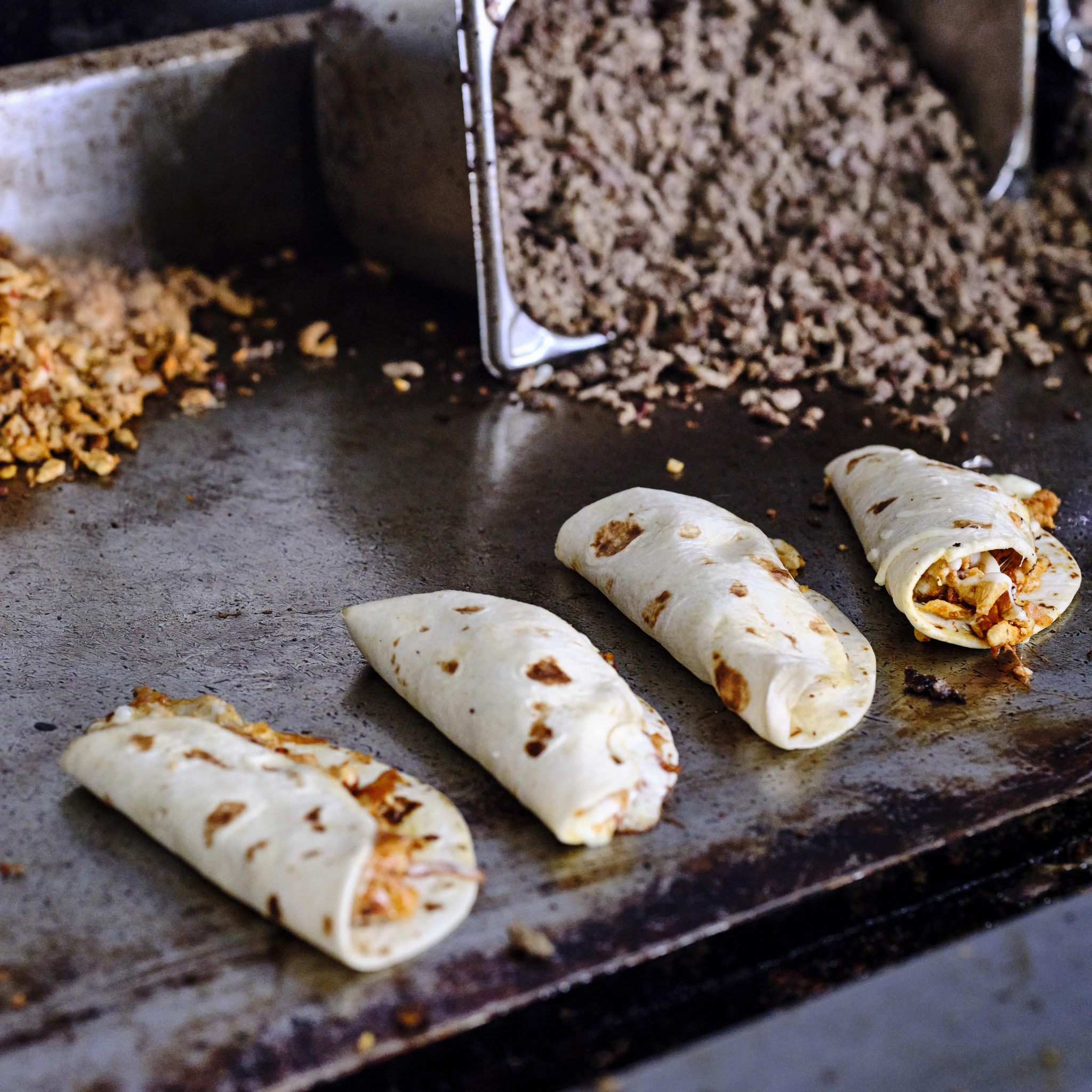
How the pandemic broke the meat supply chain
In 2020, the threat of the COVID-19 pandemic upended global supply chains across industries, from manufacturing to meats. To slow the spread of COVID, meat processing plants shut down operations or reduced worker capacity for weeks. This led to a drop in meat production and shortages in beef, poultry and other products. “Panic buying” by customers left many grocery store shelves bare.
Now, with COVID variants raging, there’s yet to be a reprieve from skyrocketing meat prices for consumers and owners of food businesses.
According to the Bureau of Labor Statistics’ Consumer Price Index Report, which measures average price changes of products over time paid by U.S. consumers, the price of pork rose 16.8% in November compared to the previous year. Chicken increased 9.2%, and beef and veal jumped by 20.9%. These figures represent what customers typically pay at grocery stores. A better indicator of what consumers may be paying for food at establishments like food trucks fall under the index category called “limited service meals and snacks.” Those prices rose 7.9%. The overall away from home figure went up 5.8%, which includes food trucks, restaurants and other establishments, representing the largest 12 month increase since January 1982, Ortega said. It’s much harder to specifically gauge the price changes for what food truck operators pay for food, as they may be purchasing items directly from a grocery store or a wholesaler.
Overall, the cost of operating a food truck is rising because of increased prices for ingredients and materials, like plastic plates and cups. Because food trucks operate at a much smaller scale, they are unable to absorb these costs to the extent a larger chain restaurant often can, Ortega said.
Though major supply chain disruptions are behind us, some remaining challenges are driving up meat prices.
Ongoing labor shortages are occurring at critical points in the supply chain, such as at processing plants and transportation companies that ship the meats.
And the pandemic is also exacerbating an existing labor problem. Michigan has trailed the nation in labor force participation for the last 10 years. According to preliminary jobs data, Michigan’s labor force participation rate in November was about 59.5%, which is down about 1 percentage point compared to the same time in 2020. Wooing people back into the workforce is a top priority for Gov. Gretchen Whitmer’s economic development plan.
Beyond the labor shortages, interconnected pressure points, such as rising costs for fertilizer, corn and soybeans, are putting a strain on meat supply chains in general. There’s also reinvigorated demand for meat.
“This is all sort of trickling down (and) compounding on each other,” Ortega said. “That’s all affecting the margins for these business owners, and, ultimately, the price that consumers are paying.”
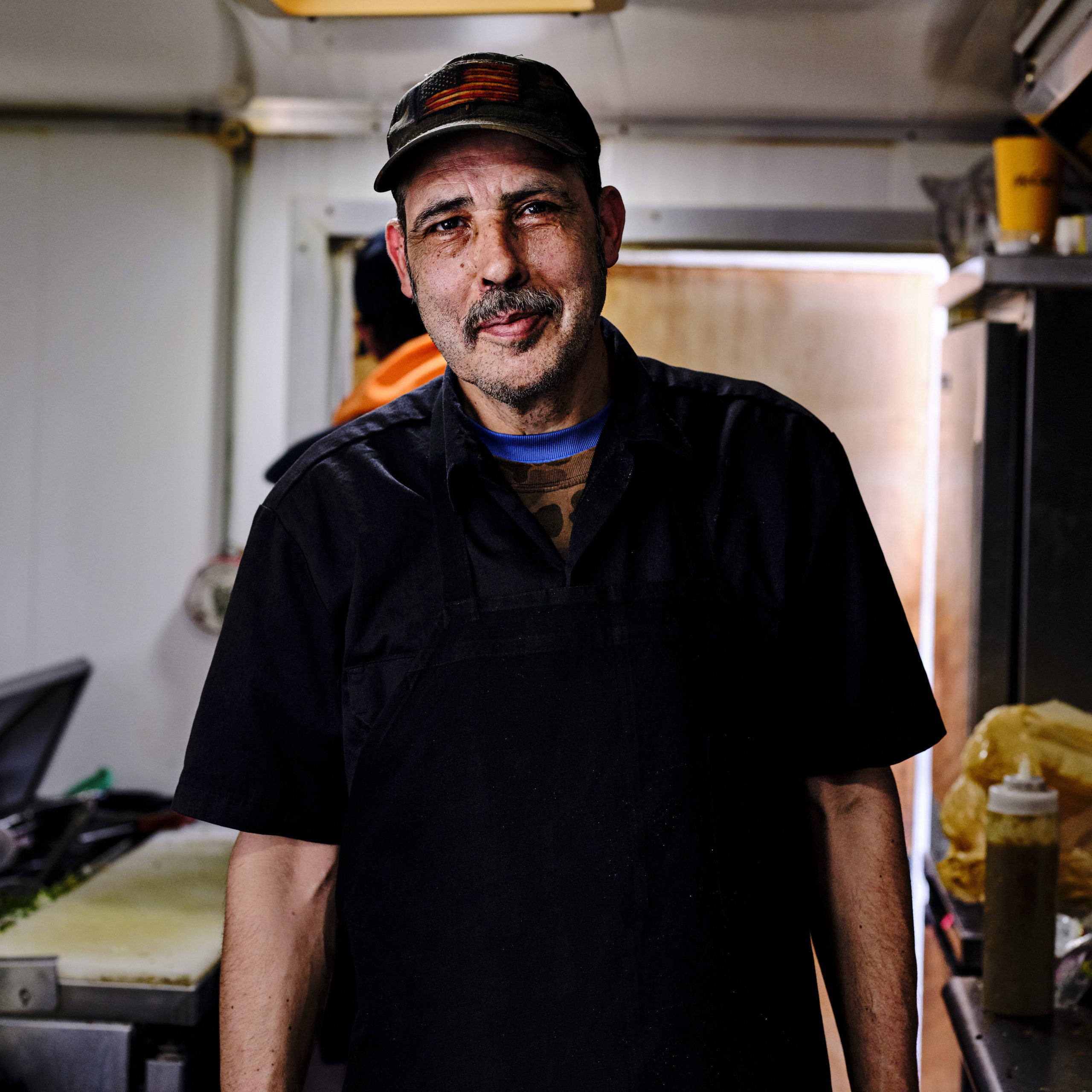
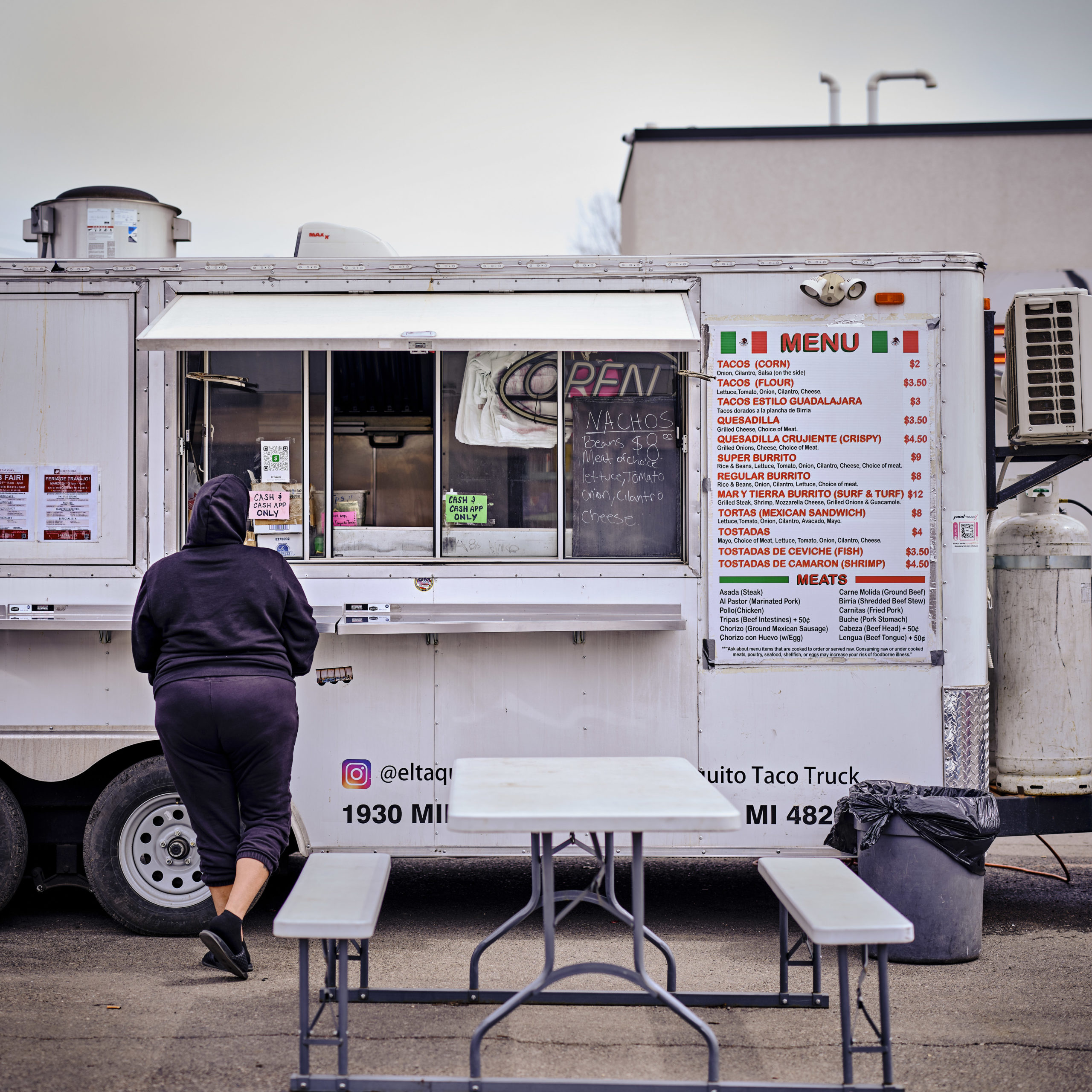
‘They’re barely making it’
Hernandez is mindful of his business margins, and there’s a simple calculus behind El Taquito’s price of tacos. As of November, Hernandez said he’s buying steak at $4.89 per pound. After cooking, that 16 ounces shrinks to about 14 ounces. About 2 ounces of meat goes into each taco. So, a pound of asada can make seven tacos. All together, it costs El Taquito 71 cents to produce a single taco using a corn tortilla. Tacos using corn tortillas sell for $2.00; tacos using flour tortillas cost $3.50.
Recently, El Taquito had to raise its price of burritos by $1. Taco prices haven’t changed, but now Hernandez is charging an extra $0.50 cents on premium meats like lengue, or beef tongue, to balance out the increased costs of ingredients and to keep his taco prices low and his customers happy.
In the middle of cooking, Hernandez flashed a yellow, carbonless paper receipt. It listed the ingredient costs written in hurried penmanship: Chicken was $1.99 per pound; a month earlier, it was $1.09 per pound. The cost of steak was up 27%.
The name printed atop the receipt was Imperial Foods. Unbeknownst to some of El Taquito’s customers, the moist and flavorful asada they’d munch on had made a pit stop at Imperial along its journey to the truck kitchen and onto their plates.
Imperial Foods is located about 5 miles away, on Adelaide Street in the heart of Eastern Market, the city’s central food hub. Imperial supplies local businesses with all the materials and ingredients they need. It recently began supplying restaurants with straws, cups and plastic containers following a surge in take-out and delivery orders during the pandemic. That’s been a boon to business, but offers only a little sense of security.
“We’re still in this survival mode,” said Mayer Mechlowitz, owner of Imperial Foods, “because we don’t really know what’s coming up.”
He’s also heard from local meat processors that they’re struggling to meet demand due to a lack of workers. He’s also seen some of his taco truck clients suffer because of the price hikes.
“You know, look at these taco trucks. They’re charging $2 apiece for a taco. I know it’s a small item, but it’s not enough. They’re paying very high prices for the meat they put in there. Very high,” he said. “And these are independent, little workers working seven days a week like crazy, and they’re barely making it.”
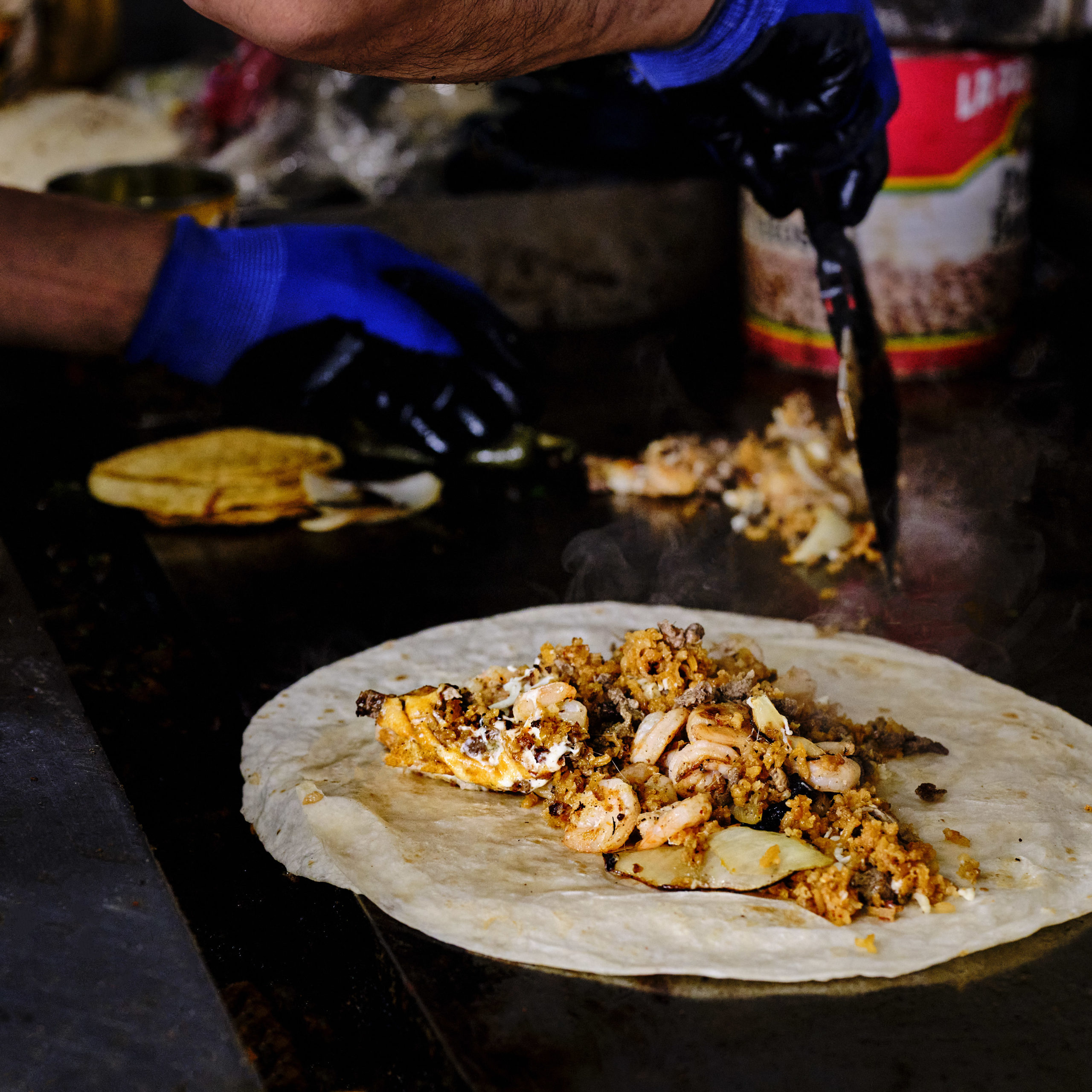
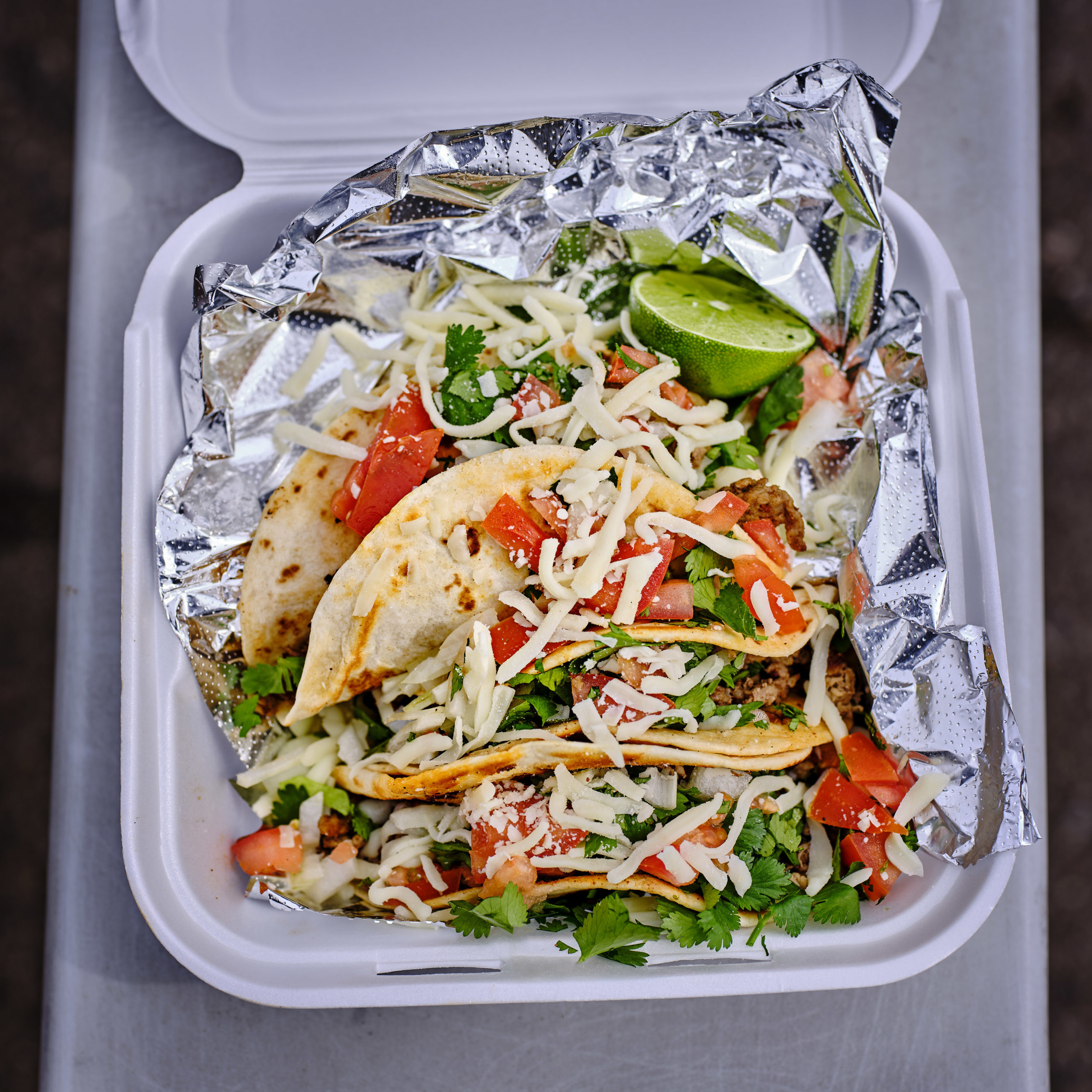
The vulnerability and resilience of taco trucks
Independently owned, and with smaller overhead costs and fewer employees to manage, taco trucks are both vulnerable and resilient to these volatile market realities, Ortega said. On one hand, taco trucks deal with shorter supply chains and have more flexibility to purchase ingredients from different suppliers if necessary, as opposed to franchise restaurants that may be locked into a vendor contract. But trucks also face constraints. With limited refrigeration, they may not be able to store large quantities of product, which may prevent them from taking advantage of bulk discounts or stocking up on items when prices drop.
The pricier meats, even the strawberries that infuse sweetness into his signature fruit cocktail drinks, coupled with rising garage rent put pressure on Jimmy Diaz-Herrera’s overhead costs, with no relief in sight.
He’s worried about the welfare of his customers.
“Food is a necessity for everybody,” said the owner of Tres Leches ‘N Snacks, also based in Southwest Detroit. “What about all the people who don’t have money? All the humble people? What about the people living with Bridge cards? You cannot continue to raise and raise the price. The rich people don’t care, but what about the middle-class people? You don’t want to lose those customers, too.”
He prides himself in serving premium and tender meats hailing from suppliers based in Chicago, but those prices have risen about 20%, he said. So he’s had to increase the price of his tacos by $0.50 cents, to about $3.50 each.
He’s had to shut down operations some days, so he can drive as far as Ypsilanti, and he found himself vying for cups and containers needed to serve his dishes and drinks because he can’t stockpile supplies.
Lately, his personal bandwidth is exhausted.
“It’s hard,” he said. “The stress of the business is affecting my health.”
‘There’s lot of uncertainty, and that’s never a good thing’
Local meat industry experts said it’s difficult to forecast when the meat supply chain will recuperate.
“We’re really on the virus’ schedule,” Ortega said. “These issues won’t go away until we have the virus under control. There’s a lot of uncertainty, and that’s never a good thing.”
Mechlowitz has a more skeptical view of the terrain.
“I don’t think it’s ever gonna be like it was,” said the Imperial Foods owner, who’s been in the meat business for over 20 years. “I think there’s always going to be some kind of shortage. We need help. We need workers. We need drivers… We need all these things to survive, and we don’t have them.”
Uncertainty still looms for Diaz-Herrera and Hernandez.
Diaz-Herrera is filling out his roster of workers for the next six months and hopes to entice potential candidates with higher pay.
He’s unsure what the remedy will be to stave off the impact of rising food prices, but he’s resolute about keeping his taco prices cheap.
“I’m a big believer in, ‘You have to keep going, no matter what,’” he said.
Halfway through El Taquito’s service, Hernandez’s disciplined cooking pace had patrons picking up their meals without complaints and in under eight minutes. Each patron gave a warm thank you and retreated back to their idling cars.
But if meat prices continue to climb, will El Taquito still be able to offer that low-cost taco?
“Not for long,” Hernandez said.
— By Eleanore Catolico for Tostada Magazine




